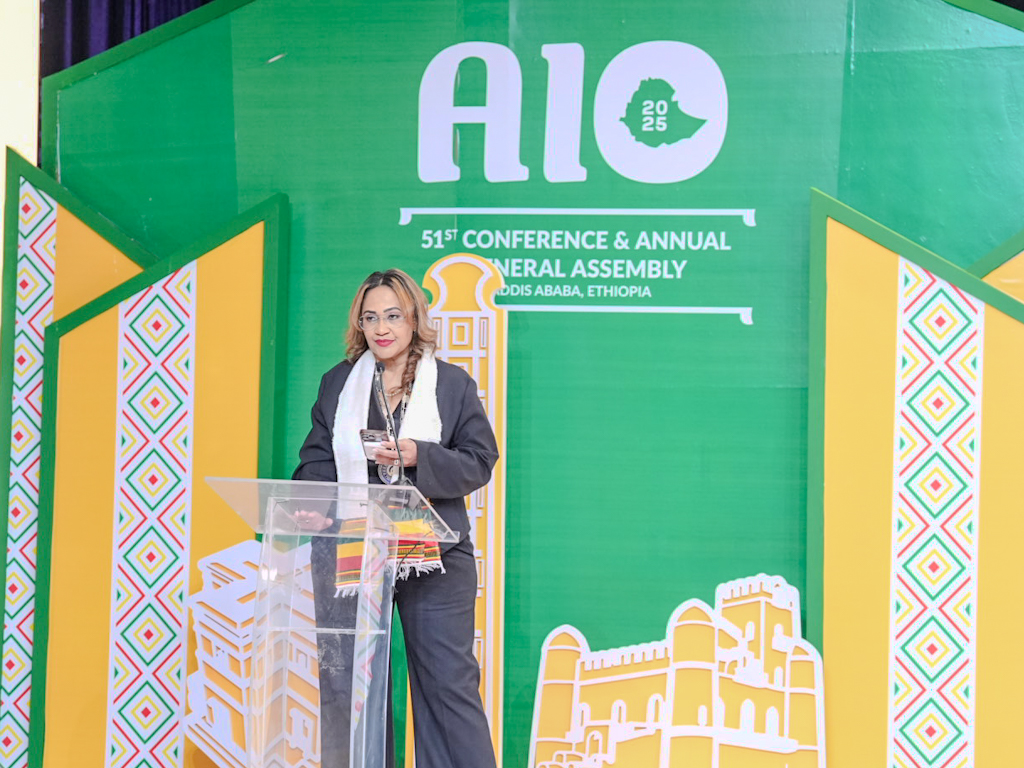Macroeconomic Stability and Financial Reforms Key to Safeguarding Africa’s Insurance Sector, Says Ethiopia’s NBE Governor
Addis Ababa, May 26, 2025 (FMC) — The Governor of the National Bank of Ethiopia (NBE), Mr. Mamo Mihretu, has underscored the critical role of macroeconomic stability and comprehensive financial sector reforms in protecting and advancing the African insurance industry amid growing sovereign debt challenges.
Speaking at the opening of the 51st Conference and Annual General Assembly of the African Insurance Organization (AIO) held in Addis Ababa, Mr. Mamo highlighted the profound impact of rising public debt across the continent on the insurance sector’s investment strategies, liquidity, and consumer confidence.
“Public debt influences foreign exchange conditions and overall macroeconomic stability, all of which have a profound implication for the insurance sector,” Mr. Mamo said. He noted the increasing difficulty faced by many African countries in servicing large foreign loans, primarily taken to finance infrastructure projects, amidst a series of global economic shocks.
According to Mr. Mamo, countries including Kenya, Zambia, Ethiopia, Malawi, Ghana, and Egypt are currently adopting economic adjustment strategies aimed at fostering growth, securing international financial support, and rescheduling debt repayments. However, he cautioned that the complexity of required international coordination makes successful implementation challenging, especially in an environment marked by cautious capital markets and geopolitical tensions.
Mr. Mamo emphasized Ethiopia’s ongoing homegrown economic reform agenda, which seeks to restore macroeconomic stability, promote inclusive growth, and unlock the country’s economic potential. Central to this blueprint is the strengthening of the private sector as a driver of innovation, growth, and job creation.
As part of this reform effort, Ethiopia has shifted to a market-based exchange rate system, a move intended to address external imbalances and enhance trade competitiveness. In the financial sector, significant reforms include the issuance of a new banking proclamation allowing the entry of foreign banks, and forthcoming legal reforms in the insurance industry aimed at modernizing regulatory frameworks and improving governance standards.
The governor also announced the government’s plans to establish an independent insurance regulatory authority to ensure specialized supervision, enhance market confidence, and support sustainable sector growth.
Addressing the conference theme, “Balancing the Books: Africa’s Debt Problem — Why Does Country Debt Impact Insurance,” Mr. Mamo further highlighted the transformative impact of technological advances such as artificial intelligence (AI) on the insurance sector. He noted that AI-driven analytics and machine learning are enabling insurers to price risk more accurately and offer personalized coverage, contributing to the rise of technology-driven online insurers in developing regions.

Following Mr. Mamo’s remarks, Ms. Patty Karuaihe-Martin, President of the African Insurance Organization, welcomed the unprecedented participation in the conference, noting close to 2,000 registrants — the highest in the organization’s 52-year history.
Ms. Patty expressed gratitude to the Ethiopian government, the National Bank of Ethiopia, and the local insurance market for their strong support in hosting the event. She highlighted the vibrancy of Ethiopia’s insurance market and the significance of hosting the AIO conference for the third time.
Turning to the conference theme, she emphasized the growing debt burden faced by African countries and its severe implications for the insurance industry. Citing recent data, she reported that 20 low-income African countries are currently in or at risk of debt distress, with the continent’s external debt reaching $685.5 billion in 2023 and projected external debt service payments of $88.7 billion in 2025.
Ms. Patty pointed out that rising public debt hampers investment in sustainable development and essential services, exacerbates inequality, and creates challenges for insurers by affecting government debt repayment capacity, liquidity, and profitability.
Highlighting AIO’s initiatives, she introduced several programs aimed at strengthening the industry across Africa, including the AIO Chartered Insurance and Certification Program focused on leadership, micro-insurance, agri-insurance, and insure-tech innovation. She also announced the launch of the African Insurance Data Repository, which will enhance access to data critical for the industry’s development.
Other key initiatives include an agriculture insurance project in partnership with the World Bank, efforts toward a harmonized regulatory framework under the African Continental Free Trade Area Agreement, actuarial development programs to address the shortage of actuaries in Africa, and the development of an aggregate mortality table to improve life and health insurance pricing.
Ms. Patty concluded by encouraging delegates to leverage the conference to build networks, exchange knowledge, and foster business partnerships to promote the growth and resilience of the African insurance sector.

The 51st AIO Conference, held under the theme “Balancing the Books: Africa’s Debt Problem – Why Does Country Debt Impact Insurers?”, runs from May 24 to 28, 2025. It provides a critical platform for high-level dialogue, innovation, and collaboration aimed at advancing financial inclusion and economic growth across Africa.

